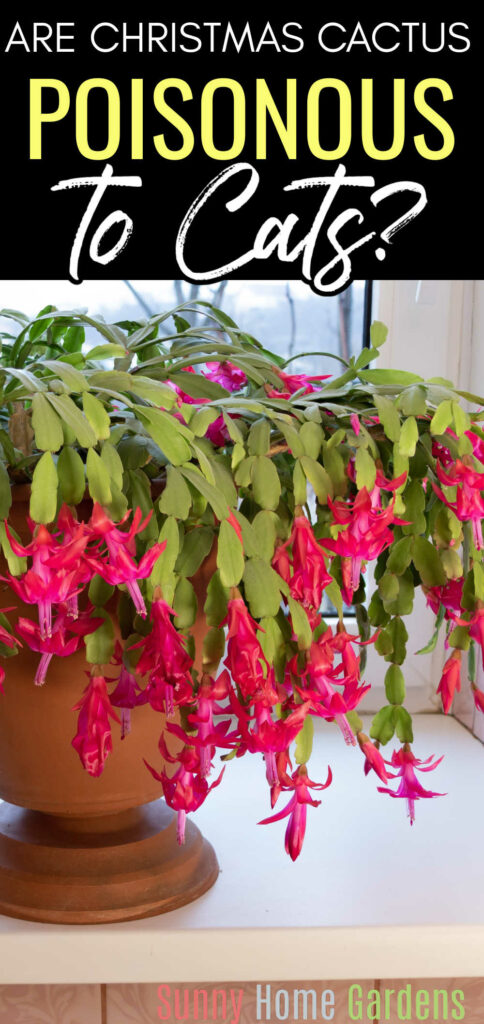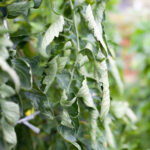Cats are notorious for their curiosity, which often leads them to explore and chew on various household plants.
As a responsible pet owner, it’s crucial to know which plants pose a threat to your feline friend’s health.
One such plant that raises questions is the Christmas cactus.
This article will discuss whether the Christmas cactus is poisonous to cats, how to identify symptoms of poisoning, and how to prevent your cat from ingesting potentially harmful plants.
Table of Contents
What is a Christmas Cactus?
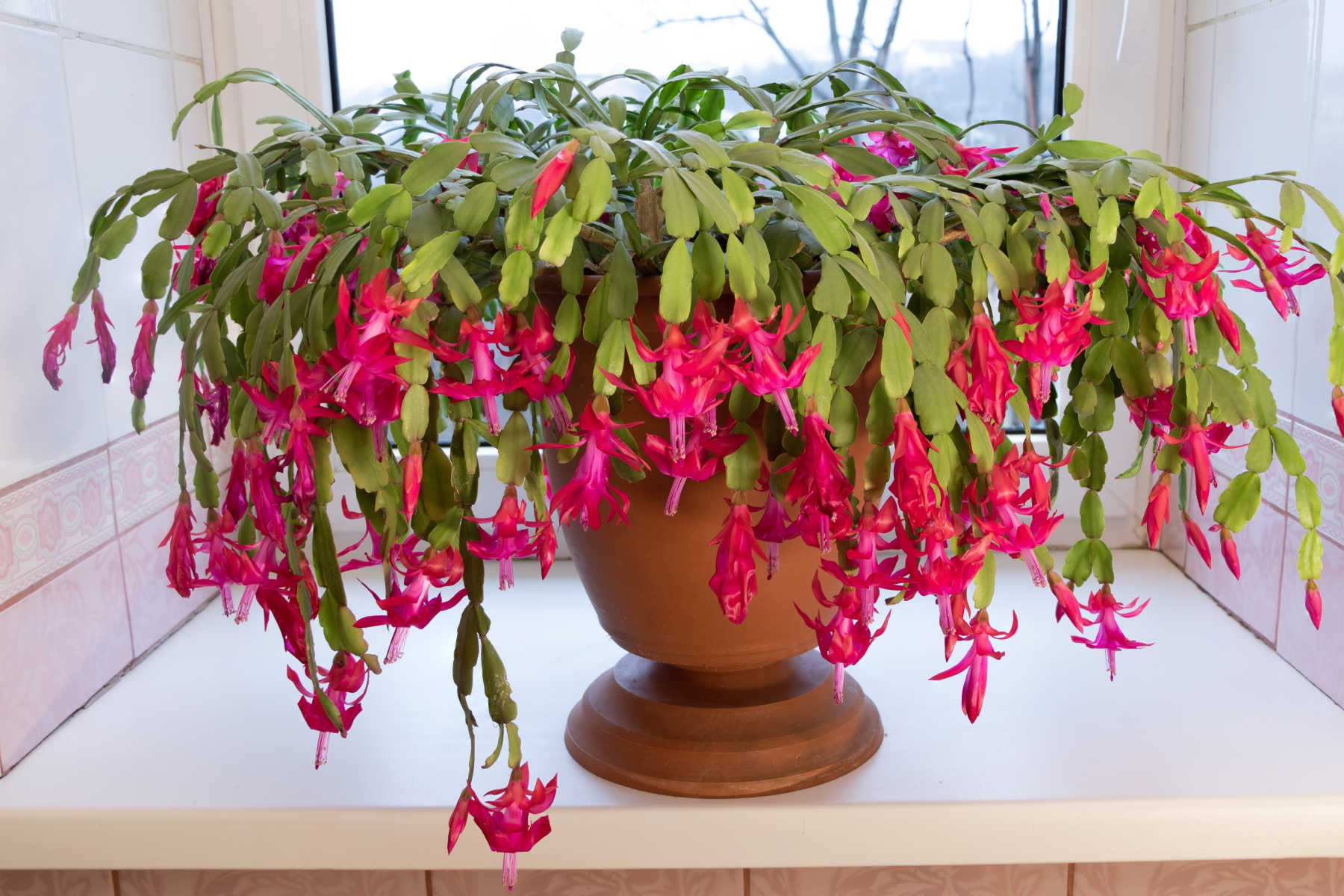
The Christmas cactus (Schlumbergera) is a popular plant, known for its striking, colorful flowers that typically bloom around Christmas time.
Originating from the rainforests of Brazil, this cactus features unique, flat and segmented stems with flowers in various shades of pink, red, and white.
The Christmas cactus is often grown as a houseplant and cherished for its low-maintenance growth habits and stunning appearance.
Are Christmas Cactus Poisonous to Cats?
Fortunately, Christmas cactus is considered non-toxic to cats, according to the American Society for the Prevention of Cruelty to Animals (ASPCA).
This means that if your cat nibbles on the plant, it’s unlikely to cause severe harm or life-threatening symptoms.
However, it’s essential to remember that individual cats may have different sensitivities, and ingesting any plant material can still lead to gastrointestinal irritation or upset.
Keeping Cats Safe Around Christmas Cactus
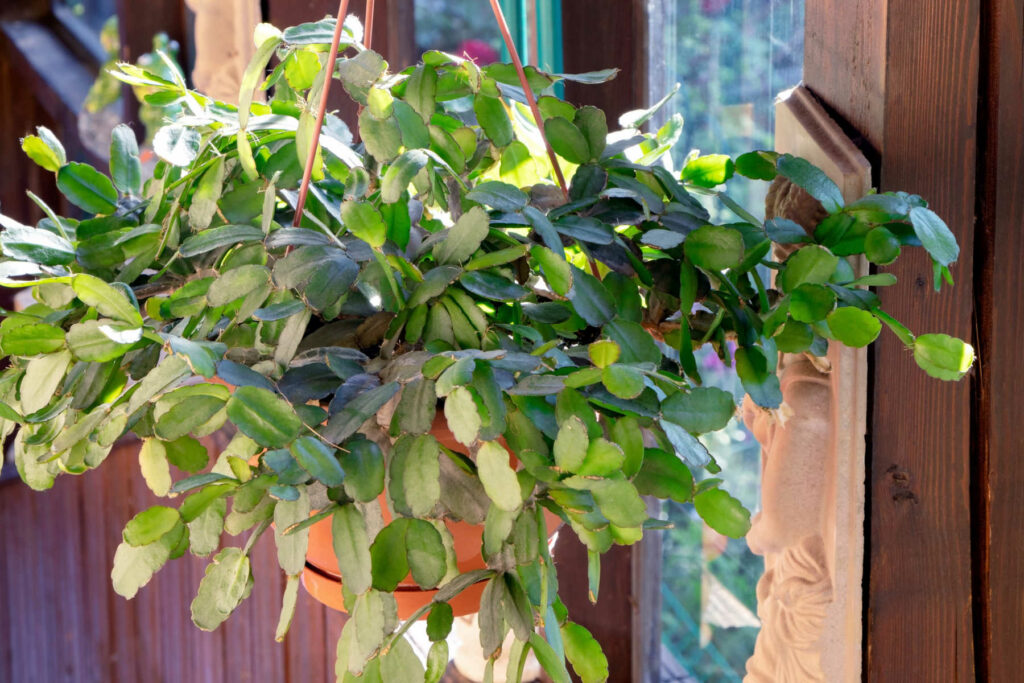
Even though the Christmas cactus isn’t poisonous, it’s still crucial to make sure your cat is safe around plants.
Here are some helpful tips to help prevent ingestion:
- Place your plant out of reach. This might sound impossible with a cat and I know how hard it can be, since I have one cat who LOVES to chew on my plants. I ended up moving my plants across the room and my cats no longer dig into my pots or eat my plants. Sometimes, just moving the plants to a place your cats aren’t as interested in being around will help prevent them from eating your plants. You may want to put your plant in a hanging planter.
- Provide alternate plants: offer safe, non-toxic plants that are kept in reach of your cats. Some great options are catnip or cat grass. This can help distract them from your Christmas cactus.
- Use deterrents: Apply pet-safe deterrent spray or citrus peels around the plant to discourage your cat from chewing on it.
- Train your cat: Teach your cat to stay away from plants using positive reinforcement. Reward them with treats or praise when they leave the plants alone.
If your cat ingests a Christmas cactus, monitor them for symptoms and contact your veterinarian for guidance. In most cases, supportive care and hydration will be sufficient to help your cat recover.
Potential Symptoms of Ingesting Christmas Cactus
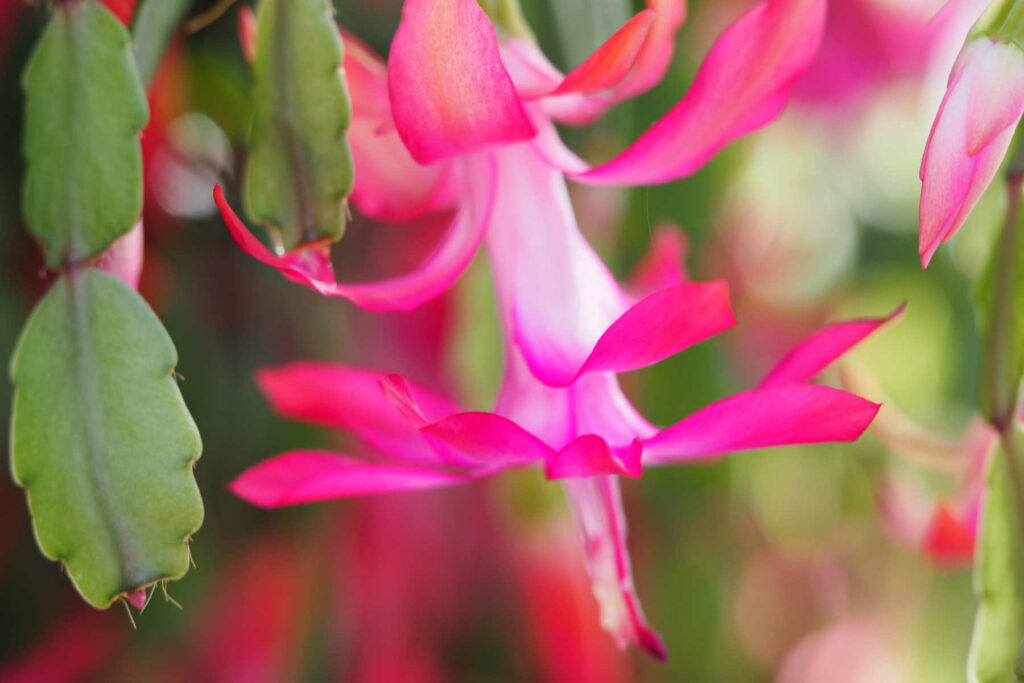
While the Christmas cactus is not considered toxic, it can still cause some mild to moderate symptoms if ingested by your cat.
These symptoms may include:
- Vomiting
- Diarrhea
- Drooling
- Loss of appetite
- Lethargy
If you suspect that your cat has ingested a large amount of the plant and is displaying any of these symptoms, it’s best to consult your veterinarian for guidance.
What to Do If Your Cat Ingests a Toxic Plant
If you suspect your cat has ingested a toxic plant, take the following steps:
- Remove any plant material from your cat’s mouth: Gently remove any remaining plant material from your cat’s mouth to prevent further ingestion.
- Identify the plant: Try to identify the plant your cat has ingested. If possible, take a photo or bring a sample of the plant with you when you consult your veterinarian.
- Contact your veterinarian or an emergency clinic: If you believe your cat has ingested a toxic plant, contact your veterinarian or an emergency clinic immediately. Provide them with information about the plant and the symptoms your cat is experiencing.
- Do not induce vomiting: Unless specifically instructed by a veterinarian, do not attempt to induce vomiting in your cat. This can cause further harm or complications.
- Monitor your cat: Keep a close eye on your cat and watch for any changes in their behavior or symptoms. If your cat’s condition worsens, contact your veterinarian right away.
Other Common Holiday Plants and Their Toxicity
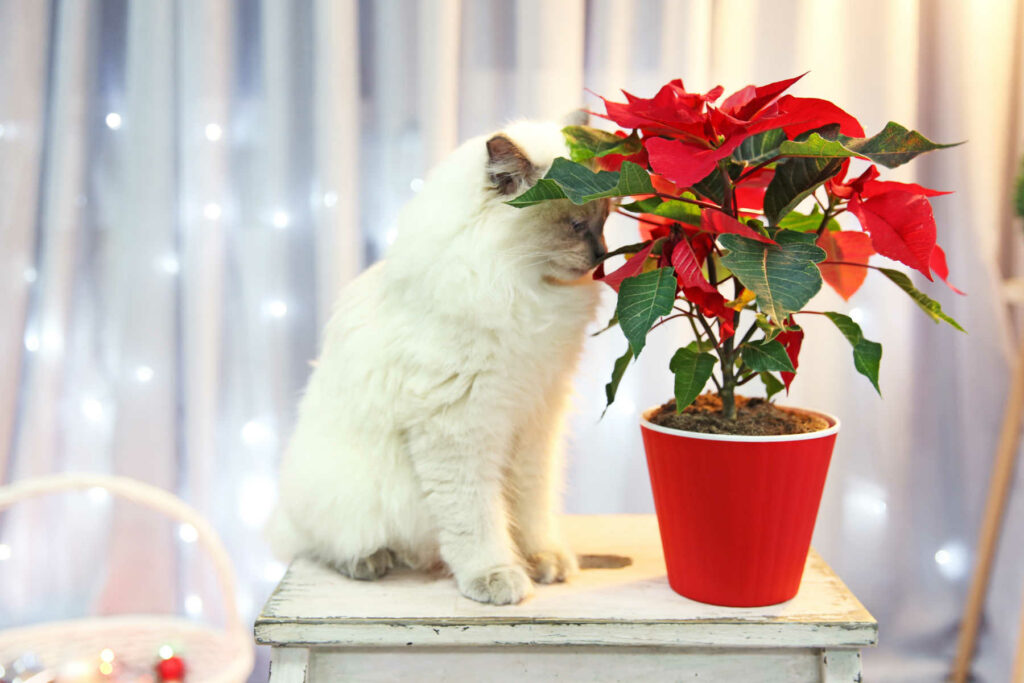
While the Christmas cactus is non-toxic, some other holiday plants can be harmful to cats. These include:
- Poinsettias: Poinsettias are often considered the most well-known holiday plant. While their toxicity to cats is often exaggerated, they can still cause gastrointestinal issues, such as vomiting and diarrhea, if ingested. Keep poinsettias away from your cat to prevent any discomfort or health issues.
- Holly: Holly is another popular holiday plant that can be dangerous to cats. Both the leaves and berries of holly plants contain toxic substances that can cause gastrointestinal upset, drooling, and, in severe cases, tremors or seizures. It’s best to keep holly plants out of your cat’s reach or opt for artificial decorations instead.
- Mistletoe: Mistletoe is a traditional holiday plant often used for decorations and as part of festive customs. However, it is toxic to cats and can cause gastrointestinal issues, difficulty breathing, low blood pressure, and even collapse or seizures in severe cases. If you choose to hang mistletoe in your home, ensure it is securely out of your cat’s reach and monitor them closely to prevent any accidents.
- Amaryllis: Amaryllis is a beautiful holiday plant with large, trumpet-shaped flowers. However, the bulbs and leaves of the amaryllis plant are toxic to cats and can cause vomiting, diarrhea, abdominal pain, tremors, and even kidney failure in severe cases. Keep amaryllis plants away from your cats and consider opting for pet-safe alternatives.
- Jerusalem Cherry: The Jerusalem cherry is a festive plant with small, bright orange or red fruits that resemble cherries. These fruits contain toxic substances that can cause gastrointestinal issues, such as vomiting and diarrhea, in cats. In severe cases, ingesting Jerusalem cherry fruits can lead to seizures or even death. Avoid bringing Jerusalem cherry plants into your home if you have curious cats.
Final Thoughts
While Christmas cactus is not considered poisonous to cats, it’s essential to be cautious and prevent your cat from ingesting any plant material.
Monitor your cat closely and ensure they have access to safe alternatives like cat grass or catnip.
Be aware of other holiday plants that can be toxic to cats, and always consult your veterinarian if you suspect your cat has ingested a harmful plant.
By taking these precautions, you can help keep your furry friend safe and healthy during the holiday season and beyond.


